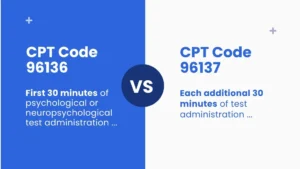Denial management in medical billing is the process of analyzing and finding a solution to issues that lead to medical claim denials. This deals with the management of existing claim denials and the prevention of future denials to enhance providers’ cash flow. Fixing evident problems like coding errors or something far less specific like improving understanding between providers and insurance companies are two potential benefits of an efficient denial management strategy.
Medical Billing Services face many challenges when it comes to handling medical billing denials. The time, money, and resources needed to repeat claims that are denied and lose income add up after the year, which can severely damage your healthcare company’s revenue cycle. Competent denial management in healthcare is necessary for your firm’s success. This guide will go over the denial management procedure in medical billing, explain its significance in the healthcare sector, and provide innovative suggestions to strengthen revenue cycle management (RCM).
What is the Denials Management process in Medical Billing?
Providers can handle claim denials more adequately by using a denial management strategy known as the IMMP process, which stands for Identify, Manage, Monitor, and Prevent. This is how the process goes below:
Step 1: Analyze Reasons behind Denials
The first step of the denial management process begins with the provider determining the cause of the claim denial. Generally provided by the payer in the explanation of the payment that goes along with the claim, claim adjustment reason codes (CARC) can be difficult to understand. In this stage of the IMMP process, the objective is to analyze the payer’s input and identify the real cause of the denial. Although it takes time, an experienced medical billing specialist or other Medical billing and coding services professional’s alertness can pay off in this situation.
Step 2: Manage all Aspects of Denials
Once the reason for the denial has been identified, the next step is to appeal the denial and secure payment from the insurance company. According to the IMMP process, the following actions should be taken to achieve this:
1) Directly Forward Denials:
All denials or medicine offices and Cost of Medical Billing Services should implement a systematic process to handle this. Coding should be directed to the provider’s coders for quick solutions. Automated systems can help with this by arranging and reducing the paperwork by routing refused interactions directly into worklists.
2) Arrange the Work:
Worklists should be classified by the Denial Management Team using software solutions based on multiple factors like quantity, time, and denial cause. Because this method is more productive than traditional systems, denials can be resolved more quickly and efficiently.
3) Establish standardized workflows:
Medical billing management services identify the facility’s most frequent denial reasons, find how the most often used code is associated with that denial, and develop an action plan for the management of denials that are similar to that, a standard action may be evolved for each type of denial.
4) Make use of a checklist:
By following a checklist of rules of engagement, the procedure can be made as systematic and error-free as possible, helping to prevent common errors that lead to stopped denials.
Step 3:Monitor the Process
During the monitoring phase, it’s crucial to keep precise records of denials, including their type, receipt date, appeal date, and outcome. The provider’s denial management or Medical billing and coding experts should have their work analyzed and be equipped with the important tools and resources for efficient task completion. This phase is to thoroughly understand each claim denial’s time, source, quantity, and type. Using this data, the provider organization can reduce future denials, improve insurer understanding, and identify denial trends.
Step 4: Preventive Measures
The final step is Preventive measures. Through staff retraining, workflow modifications, and process revisions, a preventative effort can lower future denials by utilizing the data gathered on claim denials. To introduce staff or Experienced medical billers and coders from all relevant areas with mitigation efforts and resolve typical problems in registration, authorization, and medical needs, it is vital to bring them together because numerous teams may contribute to denials.
Denial Management: Benefits for Effective Medical Billing
Managing denials in your healthcare company has many advantages. Enhanced original clean claims rate, higher net revenue collection, and better patient experience and loyalty are a few of these major benefits.
Increased net revenue collection
Taking proactive measures to handle rejections can significantly increase net revenue collection. Medical billing services for small practices can enhance their financial performance by reducing revenue loss from unpaid claims, increasing the number of accepted and paid claims, and effectively addressing and resolving claim denials.
Higher Percentage of Valid Claims:
Physician groups and management services companies should aim for a clean claims rate of 98%, according to HFMA. Denied claims increase staff working hours, administrative costs, and payment delays, as previously stated.
Improved patient loyalty and experience
Handling rejections not only has budgetary advantages but also improves patient satisfaction and loyalty. Rejected claims upset patients who are anxious for the care they require. Only satisfied patients provide positive suggestions that are essential to growing your patience.
Denial Management: Strategies for Effective Medical Billing
The complicated world of healthcare reimbursement and the Best medical coding company must be handled with effective denial management in medical billing. The following are the most effective strategies:
Being on Time:
Punctuality is important. To guarantee that claims are filed and handled quickly ideally within a week follow the guidelines and deadlines set forth by the insurance provider.
Frequent Checks:
Regularly examine the quality of verification of insurance, zero-payment claims, and assessments of transfer advice. This improves performance metrics by quickly recognizing and fixing issues.
Ensure collaboration:
To ensure collaboration, assemble a multidisciplinary denial management team of workers from many departments, including registration, nursing, IT, patient financial services, and health information management. Work with insurance payers or Premium medical billing service to swiftly resolve denials, and teach employees the latest best practices to reduce denials in the future.
Bottom Lines
We obtain the conclusion that when a health insurance or Best medical billing company refuses to pay for goods or services that it decided to cover, it is known as a denial in medical billing. This usually happens as a result of claims errors. There are several reasons for these denials, but incorrect medical billing is at the root of the issues. If health insurance companies expose corruption or believe the final bill amount is wrong, they might deny claims.
Physicians might use a medical billing company’s services to handle and stay away from denials. These businesses use accomplished methods to guarantee that payments are processed correctly and paid on schedule. We can help with claim denials and improve payment schedules if you are looking for a reliable medical billing company.





